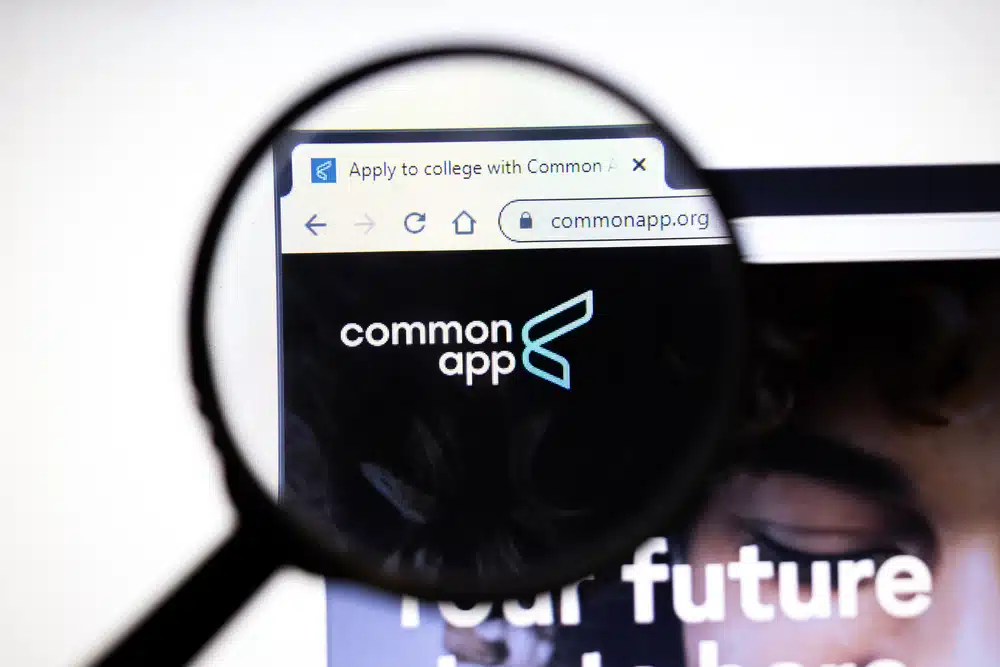Common App Essay Examples
Applying for college is no small feat, with many different elements playing a crucial role in the success of your application. One of the most critical aspects of this process is the Common App essay. This essay is the place for you to showcase who you are beyond grades and test scores, and there’s no better way to understand what works than by exploring successful Common App essay examples.
It is your opportunity to tell your unique story in a way that makes a compelling case for why you would be a valued addition to a college’s community. But what makes for a successful Common App essay? Let’s dive in.
Understanding the Importance of a Common App Essay
The Common App essay carries significant weight in the college admissions process. It’s the platform through which applicants can express their personality, interests, and individual experiences that aren’t reflected in other parts of their applications.
When it comes to college admissions, the Common App essay is like a window into your soul. It’s your opportunity to go beyond the numbers and statistics that make up your academic profile. Through this essay, you have the chance to paint a vivid picture of who you are as a person, what drives you, and what makes you unique.
Imagine the admissions officers sitting in a room surrounded by stacks of applications. They have your grades, your test scores, and your extracurricular activities in front of them. But what they really want to know is: who are you? What makes you tick? What experiences have shaped you into the person you are today? The Common App essay is your chance to answer these questions and leave a lasting impression.
The Role of the Common App Essay in College Admissions
To begin with, the purpose of the Common App essay is to give college admissions committees a glimpse of who you are as a person, not just as a student. It allows you to humanize the other elements of your application. Admissions officers read these essays to understand your personality, values, character, and perspective on life.
Think of the Common App essay as a conversation starter. It’s your opportunity to engage the admissions officers in a meaningful dialogue about your life experiences and aspirations. Through your words, you can convey your passions, your dreams, and your unique perspective on the world.
Admissions officers are looking for authenticity. They want to see the real you, not a polished version of what you think they want to hear. So, don’t be afraid to be vulnerable and share your true thoughts and emotions. Remember, it’s your story that will captivate their attention and set you apart from the thousands of other applicants.
Key Elements of a Successful Common App Essay
A successful Common App essay is one that is deeply personal, reflective, and unique. It should convey your authentic voice, depict your character growth, and highlight your ability to deal with real-world situations. It should be evaluative rather than declarative, showcasing your introspection and capacity to learn from your experiences.
When crafting your essay, think about the moments in your life that have had a profound impact on you. Maybe it was a challenging situation that tested your resilience and determination. Or perhaps it was a moment of self-discovery that changed the course of your life. Whatever it may be, choose a topic that allows you to delve deep into your thoughts and emotions.
Remember, the goal is not just to tell a story but to reflect on its significance and how it has shaped you as an individual. Admissions officers want to see your growth and development over time. They want to know how you have learned from your experiences and how they have influenced your values and beliefs.
In conclusion, the Common App essay is a powerful tool that can make or break your college admissions journey. It’s your chance to showcase your personality, your passions, and your potential. So, take the time to craft a compelling essay that truly reflects who you are and what you can bring to the college community. Good luck!
Breaking Down the 7 Inspiring Common App Essay Examples
To illuminate these points, let’s delve into seven common app essay examples that demonstrate how students have successfully told their stories while addressing the essential elements mentioned above.
Example 1: Overcoming Personal Challenges
In this essay, the applicant discusses a life-changing personal challenge. They express how experiencing a significant hardship forced them to develop crucial coping strategies and shaped their perspective on resilience. The essay is powerful, demonstrating a profound level of introspection and resilience.
For instance, the applicant could delve into the specific details of the personal challenge they faced. They could describe the emotional rollercoaster they went through, from the initial shock and despair to the gradual process of finding strength and resilience. By sharing these intimate details, the applicant allows the reader to truly understand the depth of their experience and the transformative impact it had on their life.
Furthermore, the applicant could explore the coping strategies they developed during this challenging time. They could discuss how they sought support from friends and family, engaged in therapy or counseling, or turned to creative outlets such as writing or art. By highlighting these strategies, the applicant showcases their ability to adapt and overcome adversity, which is a valuable trait in any college applicant.
Example 2: Demonstrating Leadership Skills
This essay exhibits the applicant’s leadership skills, showing how they led a team to victory in a national competition. The narrative demonstrates tenacity, strategic thinking, and the capacity to inspire others.
In addition to describing the victory itself, the applicant could delve into the process of leading the team. They could discuss the challenges they faced, such as managing conflicting personalities or navigating unexpected obstacles. By sharing these details, the applicant not only showcases their leadership skills but also their ability to handle adversity and make tough decisions under pressure.
Furthermore, the applicant could reflect on the lessons they learned from this leadership experience. They could discuss how it shaped their understanding of teamwork, communication, and the importance of setting clear goals. By highlighting these insights, the applicant demonstrates their capacity for personal growth and their ability to apply their leadership skills in future endeavors.
Example 3: Showcasing Creativity and Originality
The third essay presents a highly original and creative narrative where the student effectively illustrates their unique worldview and creativity. This demonstration of originality brings the applicant’s personality to life, setting them apart in a sea of applicants.
To further showcase their creativity, the applicant could provide specific examples of how they have applied their unique perspective in various aspects of their life. They could discuss their involvement in art, music, or writing and how they have used these mediums to express their individuality and challenge conventional norms. By sharing these examples, the applicant not only demonstrates their creativity but also their ability to think outside the box and bring fresh ideas to the table.
Furthermore, the applicant could discuss the impact of their creativity on their community or peers. They could share stories of how their unique perspective has inspired others or sparked meaningful conversations. By highlighting these instances, the applicant showcases their ability to make a positive impact and contribute to a diverse and inclusive environment.
Example 4: Highlighting Community Service
This common app essay puts focus on the student’s extensive involvement in community service, providing concrete examples of projects they led and the impact they had. The narrative demonstrates empathy, dedication, leadership, and a strong commitment to community building.
In addition to describing the projects they led, the applicant could delve into the motivations behind their involvement in community service. They could discuss personal experiences or values that inspired them to give back to their community. By sharing these motivations, the applicant not only showcases their empathy and dedication but also their ability to connect their personal experiences to meaningful action.
Furthermore, the applicant could reflect on the lessons they learned from their community service experiences. They could discuss how these experiences shaped their understanding of social issues, teamwork, and the power of collective action. By highlighting these reflections, the applicant demonstrates their capacity for personal growth and their commitment to making a positive impact in the world.
Example 5: Expressing Passion for a Course of Study
In the fifth essay, the author professes a deep passion for their chosen field of study, engineering, weaving a narrative that traces their fascination from an early age through to the current day. This narrative spotlight on academically-related experiences sets the stage for the student’s future success in the academic field.
To further express their passion for engineering, the applicant could delve into specific projects or research they have undertaken in the field. They could discuss the challenges they faced, the innovative solutions they developed, and the impact of their work. By sharing these details, the applicant not only showcases their academic abilities but also their dedication and enthusiasm for their chosen field.
Furthermore, the applicant could reflect on the broader implications of their passion for engineering. They could discuss how their interest in the field extends beyond personal fulfillment and how they aspire to make a positive impact on society through their future career. By highlighting these aspirations, the applicant demonstrates their long-term commitment to their field of study and their desire to contribute to the greater good.
Example 6: Reflecting on Personal Growth
The applicant shows a compelling journey of personal growth in this essay. They outline how they evolved from a timid freshman to a confident leader in their senior year. This demonstration of growth and maturity can be a compelling narrative angle in a common app essay.
In addition to describing their personal growth, the applicant could delve into the specific experiences or challenges that contributed to their transformation. They could discuss moments of self-doubt, setbacks, or even failures that ultimately led to their personal growth. By sharing these vulnerable moments, the applicant not only showcases their resilience but also their ability to learn from adversity and emerge stronger.
Furthermore, the applicant could reflect on the lessons they learned from their personal growth journey. They could discuss how their newfound confidence and leadership skills have impacted their relationships, academic performance, or extracurricular activities. By highlighting these reflections, the applicant demonstrates their capacity for self-awareness and their ability to apply their personal growth in various aspects of their life.
Example 7: Discussing a Significant Life Experience
This essay showcases a powerful story about a life-altering experience that shaped the applicant’s world view. The student demonstrates their ability to take away profound insights from challenging experiences, leaving an impression of resilience, wisdom, and maturity.
To further discuss the significant life experience, the applicant could delve into the emotions they felt during that time. They could describe the initial shock or confusion, the process of coming to terms with the experience, and the eventual growth and healing. By sharing these emotional details, the applicant allows the reader to truly understand the depth of their experience and the transformative impact it had on their life.
Furthermore, the applicant could reflect on the lessons they learned from this life-altering experience. They could discuss how it shaped their values, their perspective on life, or their goals for the future. By highlighting these insights, the applicant demonstrates their capacity for personal growth and their ability to find meaning in challenging circumstances.
Tips for Writing Your Own Inspiring Common App Essay
Having analyzed these examples, it’s now time for you to get started on your own essay. Here are some tips to guide you.
Choosing the Right Topic
Choose a topic that genuinely excites you. Your authenticity and enthusiasm will shine through, making your essay captivating to read. Make sure it’s a topic that allows you to showcase growth, resilience, leadership, or other qualities that will make you a desirable candidate.
Structuring Your Essay Effectively
A well-structured essay is easier to read and delivers your message more effectively. Organize your essay in a way that smoothly guides the reader through your journey. An introduction that grabs the reader’s attention, a body that delves into your story, and a conclusion that ties it all together is a good formula to follow.
Using a Personal and Authentic Voice
Be yourself. Write in a voice that feels natural to you, and avoid trying to impress with big words or forced eloquence. Your unique personality and perspective should shine through. Readers appreciate authenticity and will feel more connected to your story if it’s told in your own way.
In summary, the Common App essay is a vital component of your college application. It is the space for you to convey who you are beyond your grades and scores, to show your growth, resilience, and what makes you unique. Use these tips and Common App essay examples as a guide, and let your unique voice shine through your authentic narrative.
Having all the necessary information is important before choosing any course of action. AdmissionSight is always here to assist you with any questions or concerns. We have more than ten years of expertise assisting students in successfully navigating the challenging admissions process.
Consult with AdmissionSight and find out what we can do to help you get into the school of your choice by ensuring that you are sufficiently aware and well-prepared for the application process.










































